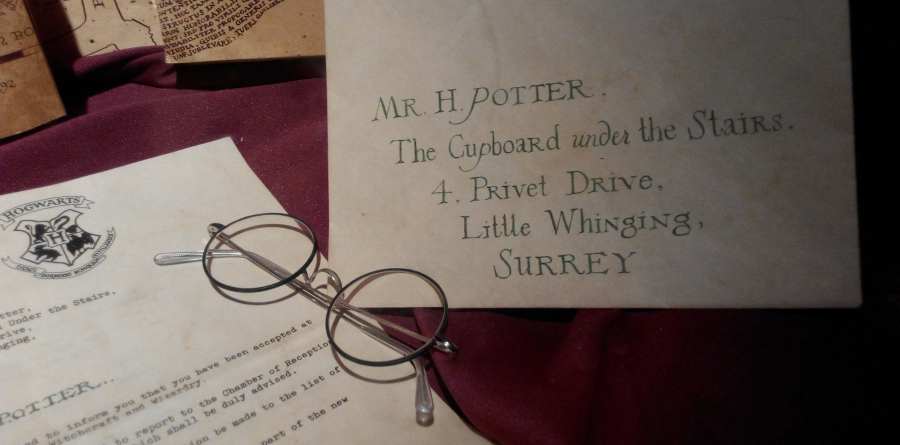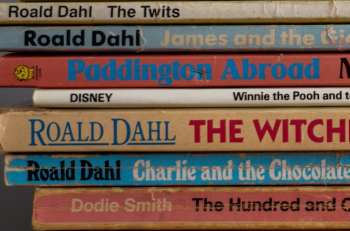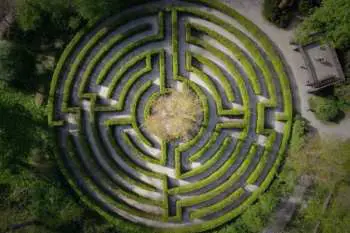This Is How J.K. Rowling Came Up With Spell Names
Spells from Harry Potter books are familiar all around the globe. Who doesn’t know spells like “Expecto Patronum” or “Avada Kedavra?” However, many often don’t know that all these spells have real-life meanings originating from ancient languages.
J.K. Rowling used Latin, ancient Greek, and Aramaic languages for the spell names in Harry Potter books. In the process of creating spell names, Rowling also used cod Latin to create Latin-sounding spell names. Rowling studied Latin and used it extensively in Harry Potter.
In this article, I’ll discuss how J.K. Rowling created spell names in her Harry Potter books and why she chose Latin for her spells. I’ll also include the meaning and origin of the most common spells that everyone knows.

J.K. Rowling’s Spell Nomenclature Explained
The world of Harry Potter abounds with magical creatures, dangerous places, and, of course, spells. Because J.K. Rowling was creating a wizarding world that’s centuries old, spell names had to reflect that. That’s why spells in Harry Potter all sound mysterious and ancient. But how did Rowling come up with all those names?
J.K. Rowling relied on three ancient languages to create names for all the spells. Those languages are:
- Latin
- Ancient Greek
- Aramaic
The majority of the spells are Latin in origin. That’s because Rowling attended the University of Exeter and studied French and the Classics. Classics basically means ancient Latin and Greek languages and literature. She used her knowledge of Latin to create some of the most memorable spells in the Harry Potter universe.
However, Rowling didn’t just borrow words and phrases from these languages. According to a Cambridge blog post, Rowling used cod Latin (or dog Latin) when creating spell names. Cod Latin is when a word isn’t grammatically correct in Latin, but it’s used because it sounds Latin. One example in Harry Potter is “Expelliarmus.”
No wonder it took J.K. Rowling decades to finish all her Harry Potter books. Check out my article How Long Did It Take To Write the Harry Potter Books? to see how many years it took Rowling to write individual books, where she wrote them, and much more!
Why Did J.K. Rowling Choose Latin for Spells in Harry Potter?
It’s not wholly without reason that Rowling decided to form spells in the Harry Potter universe that are rooted in speech. As we all know, spells in Harry Potter work only when wizards and witches pronounce them. This isn’t something new. As Hillary Waterman mentions in an article, even Old English spells relied on “speech-action.”
Moreover, Old English spells and charms always combined poetic elements in their incantations that possessed magical force. J.K. Rowling’s spells work in the same way: they’re magical because of the way they sound. So, why all these languages, then?
Rowling used mostly Latin for spell names in Harry Potter for the following reasons:
- Rowing knew Latin because of her formal education.
- English has many Latin words, so the spells would sound familiar.
- Latin’s one of the oldest languages, and the wizarding world is ancient. Having its language rooted in ancient languages just makes sense.
More than 60% of words in English originate from Latin or Greek. With this many words, English-language speakers can often recognize what a spell does based on its name. Take, for instance, the spell “Lumos.” Although its roots are in Latin (the actual word is lumen in Latin), you can probably guess it has something to do with light.
And you’d be right.
The spell creates a small ball of light at the tip of a magic wand. The word Lumos is familiar to you because that’s the origin of the English equivalent of words:
- Luminous
- To illuminate
- Illuminating (in a metaphorical sense)
The Meaning and Origin of the Most Common Spells in Harry Potter
Let’s check out some commonly used spells in the Harry Potter books and their original meaning.
Avada Kedavra
Arguably the best-known spell and the most dangerous one, Avada Kedavra (the Killing Curse), is used to kill somebody. In Harry Potter, Lord Voldemort uses this spell the most.
Avada Kedavra comes from the Aramaic language (spoken in the ancient Middle East), and we know it by its modern version as abracadabra.
Meaning: Let the thing be destroyed.
Here’s also an insightful video where Rowling talks about this spell’s origin. You’ll also see what people used this phrase for originally in ancient times:
Expecto Patronum
This spell is one of the most powerful in Harry Potter. With this spell, wizards and witches can call on their Patronuses — ghost-like guardian animals — against powerful Dementors.
Expecto Patronum comes from the Latin verb expectare (to wait) in its first-person singular form: expecto, meaning “I await.”
Patronum means “one patron.”
Meaning: I await a guardian (patron).
Expelliarmus
Wizards and witches in Harry Potter use this spell to disarm their opponents by removing their wands from their hands. That’s where the meaning behind the spell comes from.
This particular one is an example of a cod Latin word, meaning it’s not a Latin word, but it combines two Latin words to create the spell.
It comes from the Latin words: first-person singular expello (to expel) and arma (weapons).
Meaning: I expel weapons.
Wingardium Leviosa
Characters use this spell to lift and levitate an object in the air. It’s another example of cod Latin where Rowling combined English words and added Latin suffixes to make it more Latin-sounding.
The first part has the word wing to associate it with flying. It could also be the Latin word arduus (high). The second word isn’t Latin but contains the Latin root word levi (light).
Meaning: High light.
Nox
This spell is opposite to Lumos because it’s used to make a space darker by removing all the light.
It comes from the Latin word nox, meaning “night.” Also, according to the Wizarding world official website, it stems from the Greek word Nyx which signifies the goddess of night.
Meaning: Night.
Final Thoughts
J.K. Rowling studied French and Classics at Exeter University, which means she knows Latin. That helped her when creating spell names for the Harry Potter books. Rowling used three languages for spell names:
- Latin
- Ancient Greek
- Aramaic
She often didn’t rely entirely on these languages. Instead, she used cod Latin to create Latin-sounding names that aren’t necessarily grammatically correct in Latin, like “Expelliarmus.”
Sources
- Wizarding World: The Etymology of Harry Potter Spells
- Wizarding World: Discover Your Patronus on Pottermore
- Britannica: Aramaic Language
- Dictionary.com: What Percent Of English Words Are Derived From Latin?
- JSTOR: The Language of Magic in Two Old English Metrical Charms
- JSTOR Daily: Herbs & Verbs: How to Do Witchcraft for Real
- Sweetish Hill: What Is Cod Latin?
- Cambridge Blog: Harry Potter and the English Language
- J.K. Rowling: About
- YouTube: Harry Potter Latin in Magic Spells
- Slack Exchange: How Did Avada Kedavra Get Its Name?
- Quora: Who Created Spells in Harry Potter?
- Quora: How Did JK Rowling Come Up With the Spell Names in Harry Potter?
- Vasco: The Etymology of Harry Potter Spells: Where Do They Come From?
- Insider: The Real Linguistic Inspirations Behind 13 ‘Harry Potter’ Spells
- Screen Rant: Harry Potter: 10 Spells & Charms (& Where Their Names Came From)






